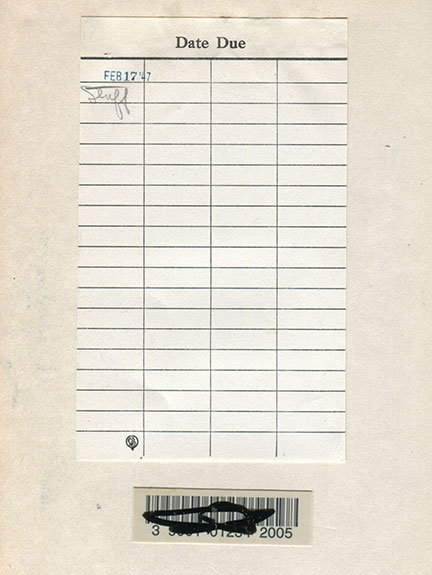 |
||
Pierce Butler, Books and Libraries in Wartime, 1945 O we lament the loss of the DATE DUE card, via which we can be privy to when a book last saw officially-registered use. Of course books get used in ways beyond the system's ability to track: they're read on laps, stolen, stolen and returned, replaced, damaged, or simply lost and then refound a decade later. To know when these pages were last riffled or touched or sniffed is an undersung pleasure and one increasingly lost to us in the age of the digital database. A pleasure too to see the stamp card retained even past its use (judging from the bar code—also since struck through), so our experience of this last white spread (also undersung, the emptiness in which the last sentence of a book might echo once the narrative or argument is done but before the cover's closed!) is archaeological: we know this book has been tracked in at least two ways and is now tracked in another way, not evident in the photograph. So we feel a trio of sadnesses: for loneliness and history and our eventual, gradual ebbing into forgetfulness, forgottenness, and nothingness. |
||
